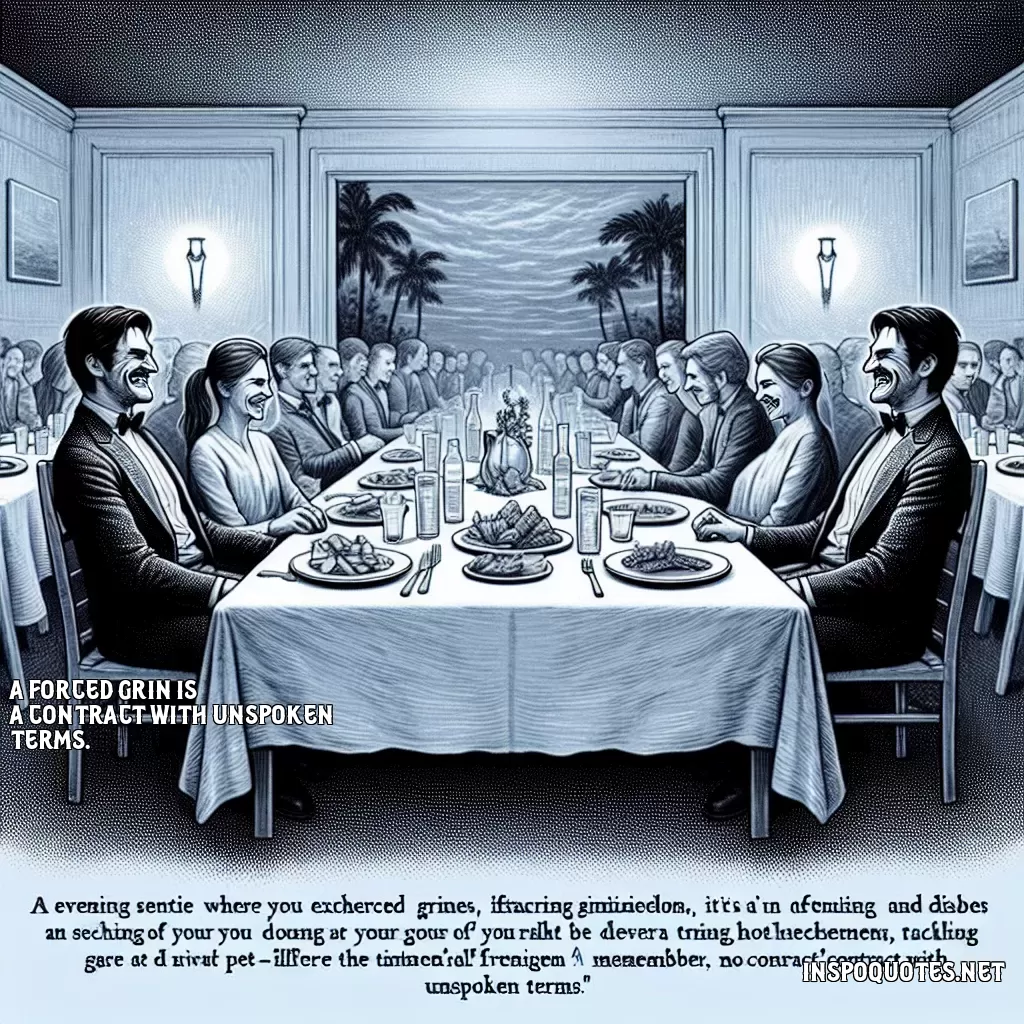
A forced grin is a contract with unspoken terms.
Author: Kaitlyn Greenidge
👁️ 18 views
The quote "A forced grin is a contract with unspoken terms" conjures a rich image of the intricate, often subconscious social negotiations we engage in. At a glance, it suggests that when someone offers a forced smile, there's more happening beneath the surface than just facial expression. Firstly, a grin is typically a sign of happiness or amusement, but when it's forced, it implies the expression is disingenuous, possibly meant to placate, deceive, or avoid confrontation. The notion of it being a "contract" suggests an agreement or understanding is being communicated, even without explicit words. This suggests that social interactions often involve silent communications where both parties understand and acknowledge certain truths without needing them to be articulated. The "unspoken terms" can refer to a myriad of underlying truths and expectations that accompany human interactions. For example, a forced grin can signify acquiescence or submission in a power dynamic, hinting at a sociocultural contract where one party might feel the need to project pleasantness for the sake of diplomacy, despite inner conflict or disagreement. Alternatively, it could denote a boundary or a veiled resistance — a subtle indication that, despite appearances, all is not well or accepted. Thus, the quote encapsulates the complexity of human interactions, where facial expressions, especially something as universal as a grin, can have layered meanings. It underscores the importance of observation and empathy to understand what lies beneath such gestures. In professional settings, forced grins might pave the way for collaboration while concealing criticism; in personal relationships, they might preserve peace while withholding true feelings. Therefore, the quote invites reflection on the nuanced, often unspoken contracts that govern social existence.
Quote By: Kaitlyn Greenidge
Kaitlyn Greenidge is an accomplished American author and essayist known for her insightful exploration of race, identity, and feminism in her work. Her debut novel, "We Love You, Charlie Freeman," was critically acclaimed and received multiple awards, while her writing has appeared in prominent publications such as The New York Times and The Paris Review. Greenidge is also an advocate for writers of color and teaches creative writing, fostering a new generation of literary voices.
Bio added on: 2025-02-17 20:21:01